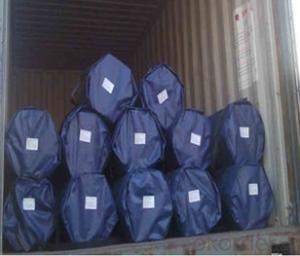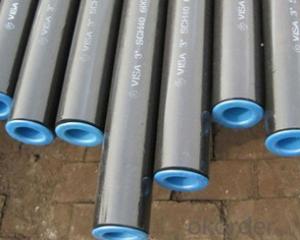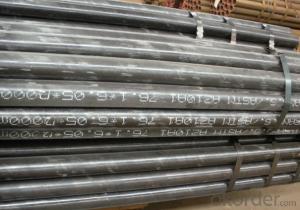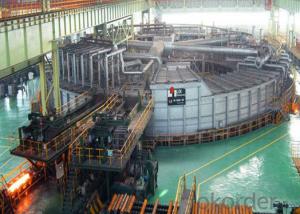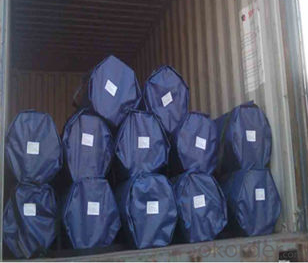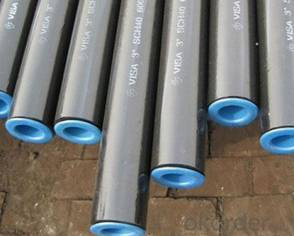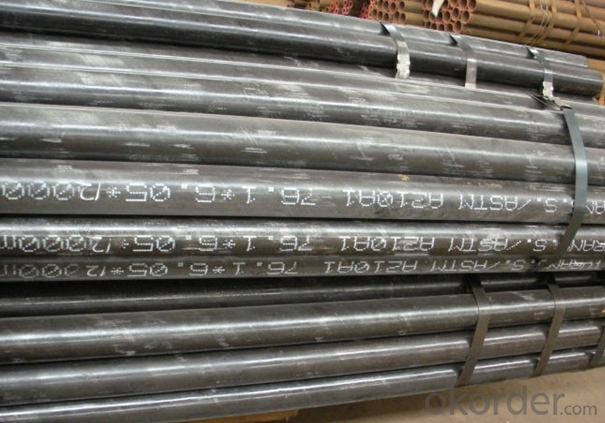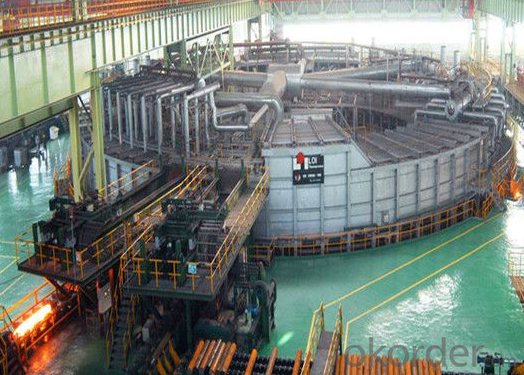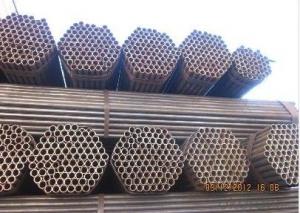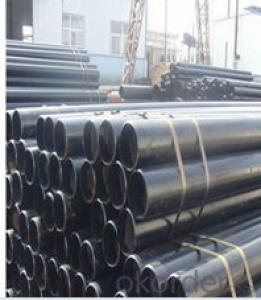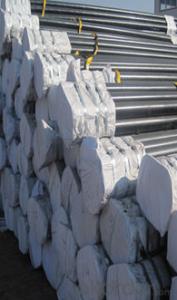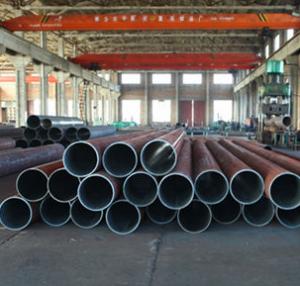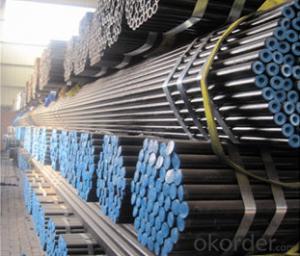High-quality Carbon Seamless Steel Pipe For Boiler APIP110 CNBM
- Loading Port:
- Qingdao
- Payment Terms:
- TT OR LC
- Min Order Qty:
- 10 pc
- Supply Capability:
- 30 pc/month
OKorder Service Pledge
OKorder Financial Service
You Might Also Like
Quick Details
| Thickness: | 3 - 60 mm | Section Shape: | Round | Outer Diameter: | 21.3 - 1220 mm |
| Secondary Or Not: | Non-secondary | Application: | fluid pipe,boiler pipe, structural pipe, oil/gas/water pipe etc | ||
| Technique: | Hot Rolled | Certification: | ISO9001-2000, ISO14000, ISO18000 , API 5L | Surface Treatment: | Painted, Oiled, galvanized or phosphate etc |
| Special Pipe: | API Pipe | Alloy Or Not: | Is Alloy | Technique:: | Hot rolled or cold rolled |
| Special pipe:: | API/ ASME/thickwall/oil/gas/water pipe | Length:: | 3-12m | Treatment of two ends:: | Beveled end , plain end etc |
| Brand:: | Bai Chuan | Third Party Inspection:: | BV, SGS etc. | Schedule:: | SCH10-SCH160, XS, XXS |
| Other Material:: | 10#, 20#, 16Mn, Q345 etc | Material Type:: | Carbon steel/ Low alloy steel | Producing standard:: | American/Japanese/ German/ Britain/ Chinese standard |
| Grade: | A53(A,B),A106(B,C),A210,API J55,St37,STPG42,A53-A369,API J55-API P110,ST35-ST52 | Standard: | BS EN10296,JIS G3452-2004 |
1. Out Diameter: | 21.3mm-1220mm |
2. Wall Thickness: | 3mm-60mm |
3. Length: | 3m-12m |
4. Producing Standard: |
|
5. Main Material: (Carbon Steel & Low Alloy steel) |
|
6. Special specifications: | Available according to customer’s requirements and quantity. |
7. End Shape: | Beveled end , plain end, varnished, or adding plastic caps to protect the two ends as per customer’s requirements. |
8. Surface treatment: | Painted, Oiled, galvanized, phosphate etc. |
9. Usage: |
|
10. Certificates: | ISO9001-2000, ISO14000, ISO18000, API 5L certificate |
11. Third party inspection: | Welcome you to send a third party inspecting company (BV, SGS etc) to check the quality of our final products. |
12. Pictures: | our producing flow chart, our factory, production line, inspecting equipments, our products are listed below for your reference. |
- Q: What is the standard length of a steel pipe?
- The standard length of a steel pipe can vary depending on the industry and application. However, in general, the standard lengths of steel pipes range from 18 to 24 feet. These lengths are commonly used in construction, plumbing, and other industrial applications. It is important to note that custom lengths can also be obtained to suit specific project requirements.
- Q: How are steel pipes used in the manufacturing of conveyor systems?
- Steel pipes are commonly used in the manufacturing of conveyor systems as they provide a sturdy and durable framework for supporting and transporting materials. These pipes are used to create the structure of the conveyor, forming the framework that holds the rollers, belts, and other components in place. Steel pipes also allow for easy customization and flexibility in designing conveyor systems to meet specific needs and requirements.
- Q: Can steel pipes be used for water supply systems?
- Yes, steel pipes can be used for water supply systems. Steel pipes are commonly used in water supply systems due to their durability, strength, and resistance to corrosion. However, it is important to ensure that the steel pipes are properly coated or lined to prevent any potential leaching of metals into the water supply. Additionally, regular maintenance and inspection is necessary to prevent any damage or deterioration that could affect the overall integrity of the water supply system.
- Q: What are steel pipes used for?
- Steel pipes are commonly used for transporting fluids and gases, as well as for structural applications such as construction, oil and gas exploration, and plumbing systems.
- Q: Can steel pipes be used for underground cable ducting?
- Yes, steel pipes can be used for underground cable ducting. Steel pipes are commonly used for underground cable ducting due to their durability and strength. They provide a protective casing for the cables, preventing damage from external factors such as moisture, pressure, and environmental elements. Steel pipes are also resistant to corrosion, which makes them a suitable choice for long-term use underground. Additionally, steel pipes can withstand heavy loads, making them ideal for areas where cables may be subjected to high pressure or weight. However, it is important to consider factors such as soil conditions, installation requirements, and the specific needs of the cable system before choosing steel pipes for underground cable ducting.
- Q: Are steel pipes suitable for use in chemical plants?
- Yes, steel pipes are generally suitable for use in chemical plants. They are known for their high strength, durability, and resistance to corrosion, making them well-suited for transporting various chemicals and fluids. Additionally, steel pipes can withstand high temperatures and pressures, making them a reliable choice for the demanding conditions often found in chemical plants.
- Q: What are the different types of threading on steel pipes?
- The different types of threading on steel pipes include tapered threads, straight threads, and buttress threads. Tapered threads are commonly used for pipes that will be screwed into fittings, while straight threads are typically used for pipes that will have a coupling or union attached. Buttress threads are designed for heavy-duty applications and provide increased strength and resistance to axial loads.
- Q: Can steel pipes be used for stormwater management systems?
- Yes, steel pipes can be used for stormwater management systems. Steel pipes are commonly used in stormwater management systems for their durability, strength, and resistance to corrosion. They can efficiently transport stormwater runoff, helping to manage and control its flow. Additionally, steel pipes can be customized to meet specific project requirements, making them a versatile choice for stormwater management systems.
- Q: What is the role of steel pipes in the construction of bridges?
- The role of steel pipes in the construction of bridges is primarily to provide structural support and stability. Steel pipes are commonly used in bridge construction to form the framework and support the weight of the bridge deck and other components. They are also used to carry various utilities such as water, gas, and electricity across the bridge. Additionally, steel pipes are durable, resistant to corrosion, and have high strength-to-weight ratio, making them an ideal choice for constructing bridges that can withstand heavy loads and harsh environmental conditions.
- Q: What is the difference between seamless steel pipes and seamless alloy steel pipes?
- The main difference between seamless steel pipes and seamless alloy steel pipes lies in their composition. Seamless steel pipes are made from carbon steel, while seamless alloy steel pipes are made from various alloying elements such as chromium, nickel, or molybdenum. These alloying elements enhance the properties of the steel, making it more resistant to corrosion, higher in strength, and suitable for specific applications in industries like oil and gas, chemical, or power generation.
Send your message to us
High-quality Carbon Seamless Steel Pipe For Boiler APIP110 CNBM
- Loading Port:
- Qingdao
- Payment Terms:
- TT OR LC
- Min Order Qty:
- 10 pc
- Supply Capability:
- 30 pc/month
OKorder Service Pledge
OKorder Financial Service
Similar products
Hot products
Hot Searches
Related keywords
